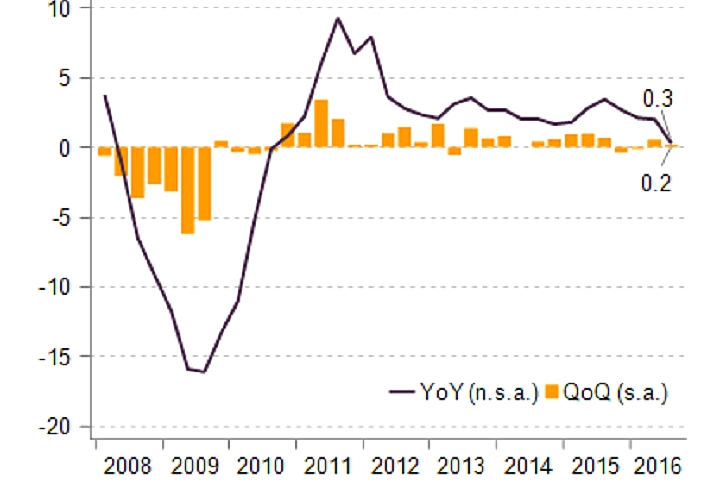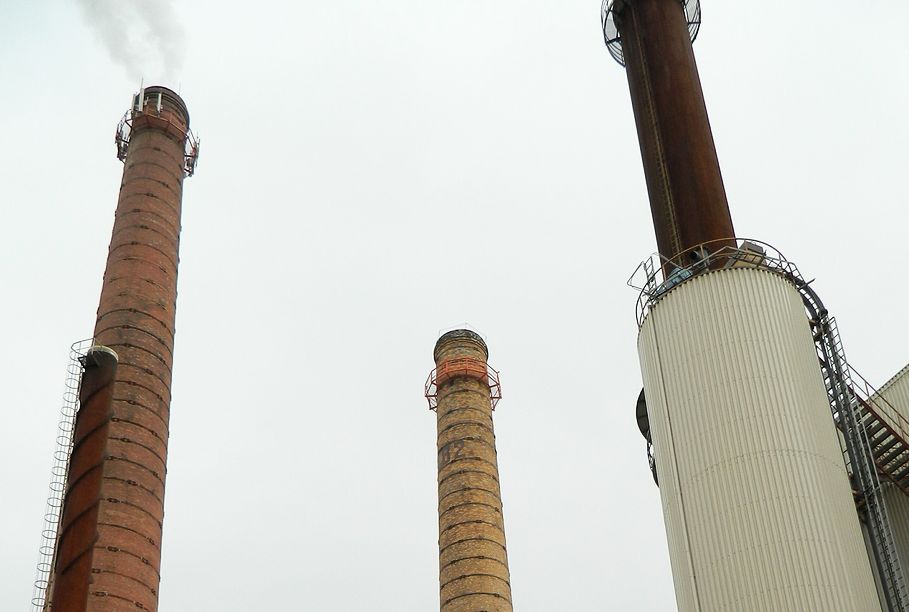Real GDP grew by only 0.3% compared to the previous year (up 0.2% against the second quarter of 2016), according to seasonally and working day adjusted data.
"The key reason for this poor data is the decrease in investment activity, which is mainly due to the delays in the EU structural funds inflows and to some extent also due to overall cautious investment confidence given the global uncertainty and slow global growth," said Swedbank in a commentary.

"Export sectors (except for transit, which is weighed down by Russia redirecting its trade flows to its own ports and thus shrinking its use of Latvian infrastructure) are growing (overall up 2.4% YoY), household consumption (3.2%) and public consumption (1.6%) are growing, as are imports (0.6%)."
"With the EU funds administrative framework by now largely in place and the contracts gradually being signed, the lowest point seems to be passed and GDP growth should pick up from here," Swedbank predicted.
This year GDP is likely to grow by 1-1.5%. Next year growth is expected to pick up to 2.6%, the bank predicted.
"With the rise in populism and numerous elections in the EU next year, which is likely to inch up uncertainty, it will be an uphill struggle to reach that growth forecast," it concluded.































